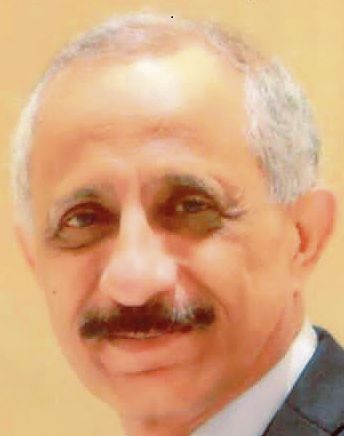
Risk: Ayurvedic products are not always safe and have sometimes drawn attention due to their side effects. istock
Rakesh Kochhar
Former President, Indian society of Gastroenterology
THE Supreme Court has pulled up Patanjali Ayurved for its advertisements against allopathy and for making false claims about its own ayurvedic medicines. The court had earlier restrained Patanjali from advertising its products as a ‘permanent relief’ for hypertension, asthma and heart disease, among other health issues. The Drugs and Magic Remedies (Objectionable Advertisements) Act, 1954, prohibits advertisements for 54 such diseases. Patanjali has also been questioned over its claim about Coronil, its product that was touted as a cure for Covid-19.
There are two issues that arise from this controversy. The first one is unsubstantiated claims about ayurvedic medicines. There has been limited research into such medicines. Unlike the stringent criteria of clinical trials for modern medicines governed by the Drug Controller General of India, the norms for other medical systems are lax. The second is the occurrence of adverse effects due to ayurvedic drugs. If proper scientific clinical trials (Phases 1, 2 and 3) and post-marketing surveillance are carried out, the reporting of adverse effects is already incorporated into them.
It is important to differentiate between herbal and dietary supplements and complementary and alternative medicine (CAM). The former are defined by the US FDA (Food and Drug Administration) as “products taken by mouth that contain a dietary ingredient intended to supplement the diet”, for example, vitamins, minerals and herbs. On the other hand, CAM therapies are based on principles derived from ancient texts and traditional beliefs, such as the Chinese, ayurvedic and unani medicines.
Ayurveda is an ancient medicine system that originated in India. It is believed to owe its existence to Hindu god Dhanvantari and is detailed in Sushruta Samhita and Charaka Samhita. Ayurveda is based on the premise that diseases are the result of an imbalance between doshas, vata, pitta and kapha. The vast majority of ayurvedic medicines are plant-based or herbal. The addition of minerals or metals like gold, arsenic, lead and sulphur to herbal medicines is called rasashastra.
In contrast, allopathic medicine is described by the WHO as “the broad category of medical practice that is called Western medicine, evidence-based medicine or modern medicine”. While modern medicine first investigates and establishes the diagnoses and then treats them, ayurveda relies more on treating the symptoms. Because of the widespread use of allopathic medicines in the Western world, there has been much scientific investment in the understanding of disease causation and its treatment. Consequently, we know the chemical structure of each medicine, the exact site of its action and its side effects. The same can’t be said about ayurvedic medicines.
Till the beginning of the last century, most medicines used the world over were plant-based or natural products. There was widespread use of heavy metals like gold, mercury and silver. Modern medicine has been in existence for the past 80 to 90 years, with antibiotics having been first used during World War II. However, since then, there have been rapid strides in the discovery of new treatments. New drugs acting at specific receptors or targeting precise disease-causing mechanisms are being developed. Some genetic disorders can now be treated with gene-editing. This requires enormous funding and the corresponding infrastructure.
However, knowledge about ayurveda has not progressed at the same pace. We know that the bark of the arjuna tree can be useful in treating hypertension, high cholesterol and heart diseases, but there is not enough scientific evidence on the exact mechanism, how it helps, its dose and the duration of treatment. Reserpine, an alkaloid from the plant Rauwolfia serpentina, was earlier used to treat hypertension in allopathy. Though it is no longer in use in allopathy because of its side effects, it continues to be used in ayurveda. Similarly, a number of natural substances like tulsi and ashwagandha have been used widely but without diligent documentation and validation. There are ayurvedic medicines for diabetes mellitus too that have shown promise. There is a need to investigate ayurvedic medicines with modern technology to explore the active ingredient, mechanism of action, drug interactions and adverse effects. Equally important are regulatory mechanisms for good manufacturing practices, quality control and standardisation. The government recently gave a push to alternative medicines by opening an Ayush (ayurveda, yoga, naturopathy, unani, siddha and homoeopathy) unit in all new AIIMS campuses. But much more needs to be done.
What can be done is exemplified by an anti-malarial drug of Chinese origin. A Chinese traditional herb, qinghao (Artemisia annua or sweet wormwood), was in use for over 2,000 years to treat fever caused by malaria. Its anti-malarial principle, qinghaosu, was discovered by Chinese scientist Tu Youyou in 1971. Its chemical structure was deciphered in 1976, leading to the development of its more effective derivatives. Currently, artesunate is used all over the world for falciparum malaria.
Ayurvedic medicines are not always safe and have also attracted attention because of their side effects. The common belief is that they are safe since they are based on natural ingredients. However, their formulations are not standardised, and they may contain impurities. A study by the PGIMER, published in the journal Toxicology Research (Cambridge) on 43 commonly used ayurvedic over-the-counter medicines found metal content above permissible limits for zinc, mercury, arsenic and lead in most of the formulations. In an earlier study from Boston, US, among the 230 ayurvedic medicines investigated, the prevalence of metals was equal in the US-manufactured and India-manufactured drugs (approximately 20 per cent each). The most common metals detected were lead and mercury, and the metal content was higher in rasashastra medicines than in non-rasashastra ones. There are increasing reports of CAM (including ayurvedic drugs) causing severe side effects, such as liver disease, kidney damage and skin reactions.
There is a need to carry out research into those ayurvedic medicines that are in common use for their constituents, active ingredients, efficacy and adverse effects. A multidisciplinary approach incorporating modern scientific armamentarium is called for. We need well-reasoned clinical trials based on valid hypotheses from thorough pre-clinical studies and objective outcome measures. Regulatory provisions should also be tightened and enforced diligently.
Join Whatsapp Channel of The Tribune for latest updates.



























